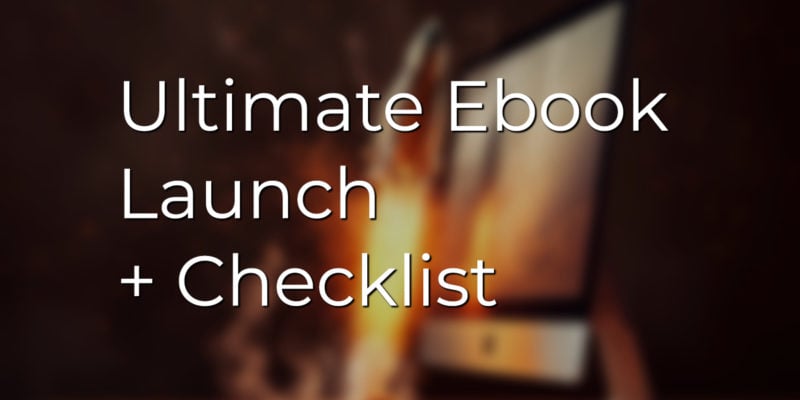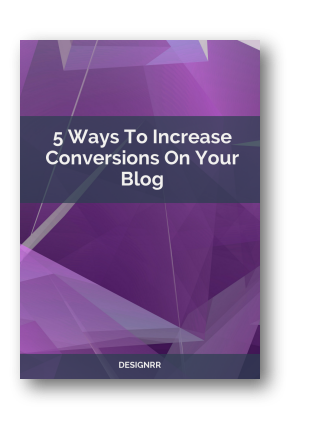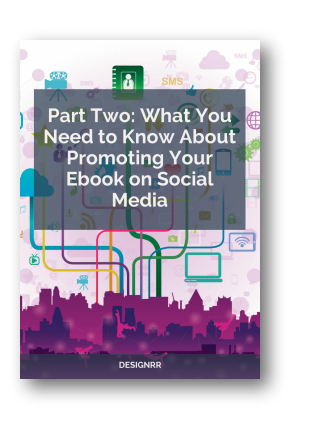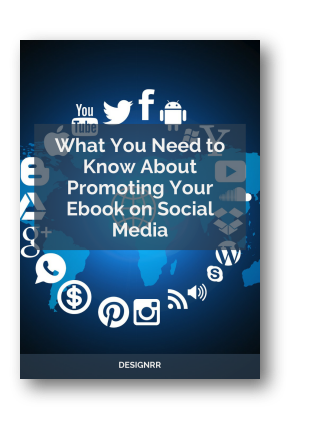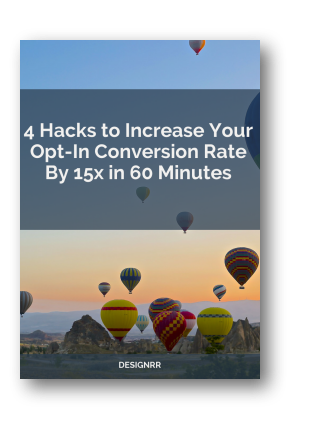Ebooks are everywhere. They’re convenient, portable, and with a little effort, anyone can get their ideas and stories in front of a global audience. Tools like Designrr’s ebook creator make formatting and designing your ebook simple. Now that you’ve written something fantastic, the thought of hitting “publish” and watching your ebook soar must be exciting! But hold on – a successful launch is about more than just having a great book. This checklist will be your trusty guide to make sure things run smoothly.
Pre-Launch Preparation

-
Manuscript completion and editing: Let’s be honest, nobody wants to read a book full of typos or plot holes. Before hitting launch, make sure your manuscript is the best it can be. Tackle those edits yourself, and consider getting a professional editor to really give it polish. Their fresh eyes can catch what you might miss.
-
Cover design: Think of your cover as a mini-billboard for your book. It needs to grab attention! If you’re design-savvy, experiment with DIY tools. But if not, there are plenty of talented freelance designers who specialize in book cover magic.
-
Book formatting: Sadly, you can’t just upload a Word doc and call it a day. Ebooks need specific formatting to look good on Kindles, tablets, etc. This is where you might want to learn some basic eBook formatting or find a service to do it for you.
-
Book description: This is your sales pitch in miniature! You need to hook potential readers with a compelling description that tells them what the book is about and why they absolutely need to read it. Sneak in a few keywords to help people searching for your type of book find you.
-
Pricing strategy: How much to charge is a tricky one! Do some research to see what similar ebooks are selling for. There’s room to experiment – you can offer launch promotions, or a lower introductory price to get early readers hooked. Remember, you can always adjust your pricing later on.
-
Distribution platforms: Where are you going to sell your ebook? Amazon KDP is the giant in the room, but there are other options like Barnes & Noble Press, Apple Books, and Kobo. Consider whether you want to be exclusive to one platform (which sometimes comes with perks) or spread your ebook across multiple retailers. This choice impacts how potential readers can find you.
Read our guide on how to launch your ebook on Amazon.
Building Your Launch Team

-
Beta Readers: Getting early feedback on your book is invaluable. Find a few trusted people (think friends, fellow writers, or superfans in your niche) who are willing to read an advance copy. Their honest criticism can help you catch issues before the book goes live. Be clear about what kind of feedback you need – are you looking for big-picture comments, nitpicky grammar help, or something in between?
-
Advance Review Copies (ARCs): Generating some early reviews is super helpful when you launch. Offer digital copies of your book in exchange for honest reviews on platforms like Amazon or Goodreads. Sites like NetGalley are designed just for this purpose! Be sure to set a deadline for reviews so you have them ready to go by launch day.
-
Launch Team: Rally your crew! This could be friends, family, loyal readers, or even fellow authors. A launch team isn’t just about asking for favors, it’s about making them part of the excitement. Give them insider access, special behind-the-scenes peeks, and maybe even some exclusive goodies. Provide them with pre-written social media posts, graphics, or a discount code they can share with their network. A little organized support (and genuine enthusiasm) can go a long way.
Marketing and Promotion

You’ve got a fantastic ebook ready, now it’s time to make the world take notice! Here are some key ways to get the word out:
Building an author website/blog
A website or blog is your digital headquarters. Even a simple site adds a touch of professionalism – include your author bio, information about your book, and easily accessible links to purchase it. A blog lets you connect more deeply with readers, offers valuable content in your niche, and helps to establish you as an authority.
- Platform Choices: WordPress offers flexibility, while Squarespace or Wix are great for beginners.
- Essential Pages: Include an ‘About’ page, a dedicated page for your book with purchase links, a ‘Contact’ page, and consider a ‘Blog’ section.
- Blog Content: Regularly posting provides value to readers and helps with SEO. Offer insights related to your book’s topic, behind-the-scenes peeks into your writing process, or interviews with other authors.
Email list development
They say “the money is in the list,” and for good reason! Email marketing gives you a direct connection with interested readers. The key is to offer something valuable to entice people to subscribe – think a free short story related to your book, an exclusive sneak peek chapter, or a helpful resource guide.
- Email Service Providers: Popular choices include Mailchimp, ConvertKit, or MailerLite, many with free beginner plans.
- Lead Magnets: Offer a compelling incentive like a free chapter, short story, worksheet, checklist, or a mini-course related to your book’s theme.
- Promote Your List: Include a signup form on your website, in social media bios, and even at the end of your ebook.
Read our full guide on how to build your email list using your ebook.
Social media strategy

Figure out where your target readers are most likely to be found – Facebook, Instagram, Twitter? Don’t try to be everywhere! Focus on one or two platforms. Share compelling visuals, thought-provoking quotes from your book, run contests, and ask questions that get people talking. Avoid being overly salesy – focus on building a genuine connection.
- Choose the Right Platforms: Where does your target audience hang out? (e.g., Instagram for visual genres, LinkedIn for professional topics, or Twitter for trending discussions).
- Content Mix: Don’t just promote your book! Share helpful tips, interesting quotes, engage in conversations, and offer a glimpse of your personality as well as your writing.
- Scheduling Tools: Hootsuite or Buffer help schedule posts in advance, ensuring consistency.
Paid advertising
If your budget allows, platforms like Amazon Ads, Facebook Ads, or BookBub Ads provide ways to target your ideal readers. Start with smaller campaigns and carefully track your results. This way, you can optimize what works!
- Amazon Ads: Target people browsing similar books by keywords.
- Facebook/Instagram Ads: Powerful demographic targeting to reach your ideal reader.
- Bookbub Ads: Reach avid readers in your genre through their email newsletter or promotional features.
- Track Results: Always monitor how your ads perform to optimize and avoid wasting your budget.
Book blog outreach
Research blogs that specialize in your genre or niche and see if they accept book reviews or author interviews. Craft a personalized pitch, offer a free review copy, and be respectful of their time. A strong feature on a popular blog can do wonders for visibility.
- Find the Right Blogs: Search “[your genre] book blog,” and check their submission/review policies.
- Personalized Pitch: Don’t send generic emails! Show you know the blog and why your book might be a good fit.
- Follow Up: A polite follow-up email after a week or two is acceptable if you don’t hear back.
Online communities
Seek out forums, Facebook groups, or subreddits where readers in your target audience converse. Become an active, helpful member of these communities before subtly mentioning your book. Focus on building relationships, not blatant self-promotion.
- Be Genuine: Focus on contributing value first. Answer questions, offer advice, and participate authentically.
- Subtle Promotion: Only mention your book when it’s relevant to a discussion, avoid spammy self-promotion.
- Put It in Your Profile: Many forums allow a signature line where you can subtly link to your book or website.
Launch Week

The big day has arrived! This is where your hard work and careful planning will culminate in a thrilling debut for your ebook. Here’s a breakdown of key tactics to maximize your launch week impact:
Launch day announcement
Make this announcement clear, enthusiastic, and designed to grab attention. Share it with your email list and across all your social media channels. Include eye-catching visuals, a compelling description of your book, and easily accessible links to where people can buy it. Emphasize any special launch offers or time-limited bonuses.
Promotional activities
- Price Promotions: A temporary launch discount can create a sense of urgency and encourage people to take the plunge. Experiment with a short-term introductory price or a “countdown deal” where the price gradually increases over the week.
- Giveaways and Contests: A well-run giveaway can create a buzz around your ebook. Consider offering copies of your ebook, a signed paperback (if you have one), or a themed prize pack related to your book’s content. Contests encourage engagement – ask people to share a post, leave a creative comment, or tag friends for a chance to win.
- Guest Posts and Interviews: If you’ve lined up guest blog features or podcast interviews, make sure they are scheduled during your launch week. This helps you reach a brand-new audience and establish your authority. Prepare by having insightful talking points and a strong call to action directing listeners/readers to your book.
- Collaborate with other Authors: Partner with authors who write in a similar genre. You could do a joint giveaway, cross-promote each other’s books on social media, or even co-host a virtual event or livestream. This taps into existing audiences and builds a sense of community.
- Utilize Reader Magnets: Offer additional short bonus content related to your book for free when people purchase during launch week. This creates extra value and makes it a more tempting offer.
Monitor and engage:
- Track Sales: Keep a close eye on your sales dashboards across the various platforms where you’ve listed your ebook. This will help you gauge the effectiveness of your promotions and provides a thrilling boost of motivation as you see the sales coming in.
- Respond to Feedback: Actively monitor and reply to reviews, comments on social media, and any direct messages you receive. Thank your early readers for their support, answer questions thoughtfully, and generally show that you’re an engaged and appreciative author. This builds positive buzz and encourages others to join in.
Read our guide on how to promote your ebooks from the experts themselves.
Post-Launch Momentum

All those fantastic launch week activities got your book off to a great start, but the work of an author is never truly done! Here’s how to turn those initial sales into long-term success:
Continued marketing:
-
- Repurposing content: Turn snippets of your book into shareable social media graphics, use quotes for eye-catching visuals, and record yourself reading short passages as teasers.
- Ongoing social activity: Keep the conversation going on your chosen social platforms. Celebrate milestones, interact with questions from readers, and offer insights related to your book’s themes.
Reader engagement:
-
- Encourage reviews: Actively ask happy readers to leave reviews on sites like Amazon, Goodreads, or other retailer platforms. Positive reviews go a long way in attracting new readers.
- Build a Community: Consider creating a Facebook group or online forum where readers can connect with each other, discuss your book, and get excited for future releases.
- Respond to Feedback: Continue responding thoughtfully to comments, questions, and both positive and critical feedback. This demonstrates a commitment to your readership.
Next steps:
-
- Additional formats: Explore options like turning your ebook into an audiobook or creating a print-on-demand paperback version. These expand your reach and increase the appeal for different types of readers.
- Plan Your Next Project: The best way to stay relevant is to keep creating! Brainstorm sequels, prequels, spin-offs, or consider an entirely new project in a related niche. The excitement you generated with this launch can spill over into your future endeavors.
Sample eBook Launch Timeline

Please note: This timeline is a suggestion, and you should tailor it to your specific needs and the time available.
6-12 Months Pre-Launch
- Finalize manuscript
- Begin securing beta readers
- Start designing your book cover
- Research keywords and optimize your book’s description
- Explore book distribution platforms
3-6 Months Pre-Launch
- Complete professional editing
- Receive beta reader feedback and make revisions
- Finalize book cover design
- Begin building your email list
- Research relevant blogs and influencers in your niche
1-3 Months Pre-Launch
- Format your ebook manuscript
- Send advance review copies (ARCs)
- Draft social media posts and promotional materials
- Set a launch date and start teasing your launch
- Consider budgeting for paid advertising campaigns
Launch Week
- Launch day announcement & promotions
- Submit your book to relevant promotional sites (like BookBub)
- Run giveaways/contests
- Share guest posts or interviews, if scheduled
- Track sales and engage with readers
Post Launch
- Continue with ongoing promotions and social media activity
- Actively seek more reviews
- Explore options for additional formats (audiobook, etc.)
- Start planning your next book!
eBook Launch Checklist

Here’s a simple checklist based on the sections we’ve discussed.
Pre-Launch
- [ ] Complete manuscript and editing
- [ ] Design (or commission) book cover
- [ ] Format ebook for different retailers
- [ ] Write compelling book description
- [ ] Secure beta readers
- [ ] Distribute ARCs
- [ ] Build your email list
Marketing & Promotion
- [ ] Develop a website and/or blog
- [ ] Choose social media platforms
- [ ] Plan launch day announcement
- [ ] Prepare promotional materials (graphics, teasers)
- [ ] Consider paid advertising options
- [ ] Research and contact book blogs
- [ ] Identify online communities in your niche
Launch Week
- [ ] Make the launch announcement
- [ ] Run price promotions
- [ ] Host giveaways or contests
- [ ] Engage with readers on social media
- [ ] Monitor sales rankings
Post-Launch
- [ ] Continue promotion and social media engagement
- [ ] Seek additional reviews
- [ ] Explore new formats for your book
- [ ] Start thinking about your next writing project
Conclusion
Launching an ebook is a huge milestone and a testament to your hard work. This checklist offers a roadmap to make the process as smooth and successful as possible. Remember, there’s no single “right” way to launch a book. Experiment, adapt, and learn what works best for you and your audience. The most important thing is to be excited about what you’ve created and share that enthusiasm with the world!
Cut your eBook writing time and launch your ebook business TODAY! Check out Designrr’s special offer today.
